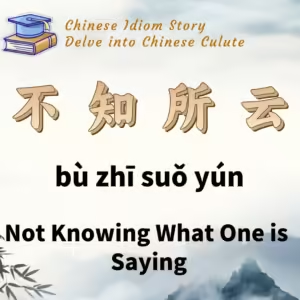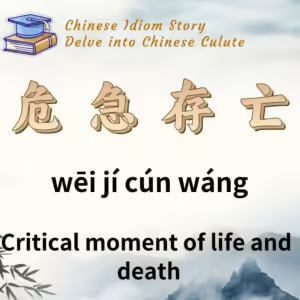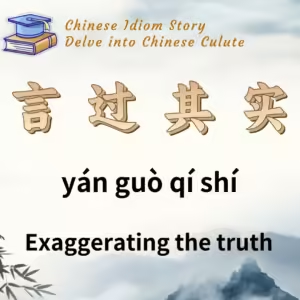
Chinese Idiom: 不知所云 (Bu Zhi Suo Yun)
English Translations: Not Knowing What One is Saying
pīn yīn: bù zhī suǒ yún
Idiom Meaning: Originally used to express modesty, indicating that one does not know what to say. Today, it is often used to describe someone whose speech is incoherent or whose statements are confusing and lack a clear point.
Historical Source: Memorial on the First Campaign (《前出师表》) by Zhuge Liang
Idiom Story:
Zhuge Liang, also known as Kongming, was a highly esteemed statesman and military strategist during the Three Kingdoms period of China. Born in Yangdu (present-day Shandong), he initially lived in seclusion in Nanyang before assisting Liu Bei in establishing the Shu Han dynasty. After Liu Bei’s death, Zhuge Liang continued to serve his successor, Liu Shan.
In 227 AD, Zhuge Liang prepared to launch a military campaign against the Wei state. Before setting out, he wrote the famous First Memorial on the Campaign to Liu Shan, providing a detailed account of his loyalty, the current situation, and his strategic recommendations.
In this memorial, Zhuge Liang expressed his deep emotions and dedication. He detailed the precarious situation of Shu Han and his plans to ensure its stability. As he prepared to leave for the campaign, he wrote with heartfelt emotion:
“今当远离,临表涕泣,不知所云。”
This translates to: “Now that I am about to leave, as I write this memorial, tears are streaming down my face, and I do not know what to say.”
Zhuge Liang’s words conveyed his emotional state and sense of helplessness as he faced the uncertainties of the campaign and the separation from his sovereign. Over time, the phrase “不知所云” from this context came to be used more broadly to describe situations where someone speaks unclearly or their message is hard to understand.






